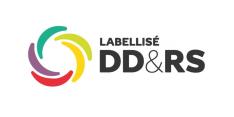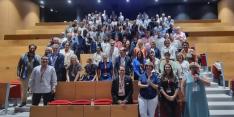

05 November 2024
New Chair at EM Normandie: the European Chair of Excellence in Circular Economy and Territories
SD & CSR Research and Faculty
Circular economy: an underused but promising model
The circular economy represents a fundamental break with the traditional linear model based on the unlimited exploitation of natural resources. This model, which is still under-exploited in many areas, offers a virtuous approach that goes far beyond recycling: extending the lifespan of products, recovering waste and promoting responsible consumption to reduce the depletion of natural resources. The benefits of the circular economy are countless. For businesses, it offers a number of key advantages: securing supplies by reusing recycled raw materials, reducing the carbon footprint by recovering waste, developing new business models based on leasing or pooling resources. For local authorities, the circular economy also offers many opportunities: strengthening the local roots of economic activities, creating sustainable local jobs, meeting the ecological transition challenges, while limiting the volume of waste to be managed.
The key role of local authorities in the circular transition
Local and regional authorities are major players in the deployment of the circular economy. By implementing appropriate public policies, supporting local initiatives and investing in dedicated infrastructure (sorting centres, business parks, reuse platforms, etc.), local authorities are creating an environment that is conducive to this transition. However, initiatives remain marginal: today, fewer than 40 European cities with more than 50,000 inhabitants have implemented circular economy strategies. It is in this context that the European Chair of Excellence in Circular Economy and Territories is committed, providing local authorities and businesses with the support they need to structure and deploy ambitious circular economy projects.
The Chair's missions: a multi-dimensional commitment
The Chair adopts a multi-dimensional approach to promote the circular economy, structured around three areas: research, awareness-raising and advocacy.
1. Research and expertise
- Understanding and analysing: carrying out in-depth studies on the barriers and levers of the circular transition across Europe, based on empirical data and case studies.
- Mapping initiatives: identifying inspiring projects in the fields of waste management, reuse and recovery of raw materials.
2. Awareness-raising and training
- Informing the public: raising awareness among citizens, political decision-makers and businesses of the concrete benefits of the circular economy for the environment, the economy and society.
- Educating stakeholders: offering tailor-made training courses, workshops and skills development programmes for students, local elected representatives and business leaders.
3. Advocacy and influence
- Impacting public policy: formulating concrete recommendations at national and European level to support the deployment of the circular economy.
- Encourage collaboration: create synergies between businesses, local authorities, researchers and citizens to facilitate the emergence of projects.
A multidisciplinary team

The chair is holded by Sébastien Bourdin, Professor of Economic Geography, who has a PhD in Geography and a "Habilitation à Diriger des Recherches". A specialist in energy transition and sustainable energy, he has led several European and national projects on the circular economy. He is supported by a multi-disciplinary team of researchers and experts from EM Normandie with a wide range of skills, reflecting the multi-disciplinary nature of the Chair.
- Marine Bastiège - Assistant Professor of Sustainable Development
- Nicolas Jacquet - Research assistant
- Florian Favreau - Associate Professor of Accounting and Public Management
- Moacir Godinho Filho - Professor of Supply Chain Management and Logistics
- Nicolas Jacquet - Research Assistant
- Sneha Kumari - Assistant Professor in Agricultural Supply Chains
- Olivier Lamirault - Director of Innovation and Educational Technologies
- Amandine Laré - Associate Professor in Social and Solidarity Economy
- Valentin Lecaillez - Research Development Officer
- Ana Beatriz Lopes de Sousa Jabbour - Professor of Supply Chain Management for Sustainable Development
- Fabien Nadou - Associate Professor of Territorial Development
- Venkataswamy Gurusamy Venkatesh - Professor of Supply Chain Management and Logistics
Ces articles peuvent vous intéresser
-

EM Normandie renews its DD&RS label and strengthens its commitment to corporate…
07 October 2025
-

EM Normandie: excellence at the heart of the 2025 academic year
30 September 2025
-

EM Normandie Business School is organising the DisrupTechs-Agora 2024…
21 November 2024
-

Faculty and Research at EM Normandie Business School take off
19 November 2024
